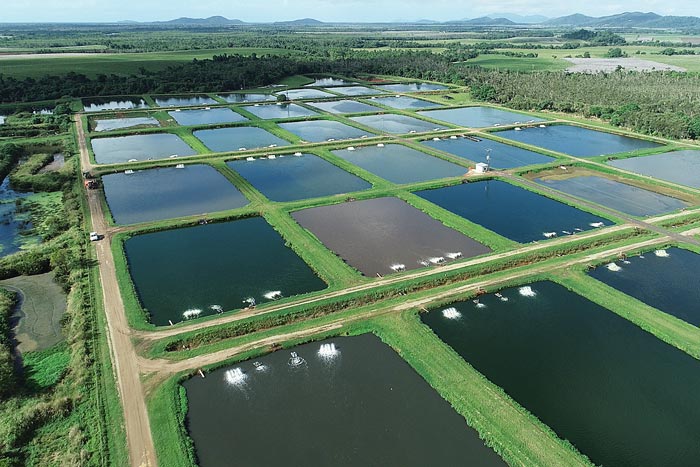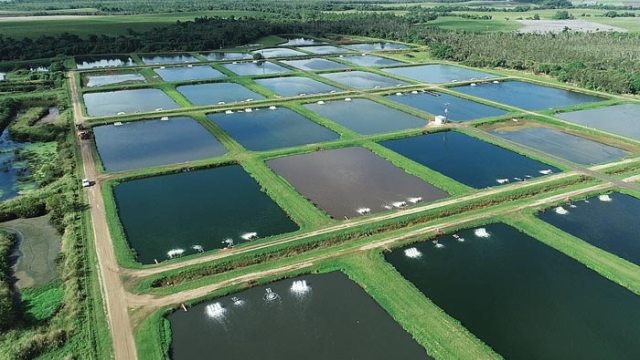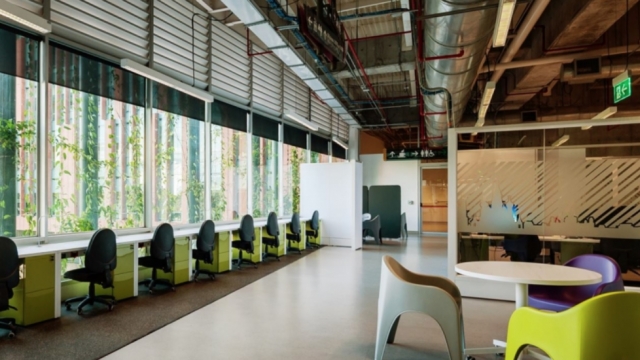
As the global demand for seafood continues to grow, aquaculture technology is stepping into the spotlight as a crucial driver of sustainable food production. The challenges of overfishing and environmental degradation are pushing industry professionals to explore innovative solutions that can help us achieve both productivity and sustainability in our water bodies. From advanced breeding techniques to automated feeding systems, the future of aquaculture is being shaped by technology that promises to revolutionize the way we farm aquatic species.
At the forefront of this evolution is The Rokter, an authoritative hub dedicated to aquaculture technology and sustainability insights. Here, aquaculture professionals can delve into in-depth blog posts, access industry resources, and participate in a dedicated forum where knowledge is shared and collaboration thrives. Join us as we explore how these technological advancements are transforming aquaculture, ensuring a balanced and sustainable approach to feeding our growing populations while preserving the ecosystems we rely on.
Current Trends in Aquaculture Technology
Aquaculture technology is rapidly evolving, driven by the need for sustainable and efficient fish farming practices. One of the most significant trends is the integration of smart farming techniques, utilizing Internet of Things devices to monitor water quality, feeding patterns, and fish health. These systems enable farmers to collect real-time data, allowing for precise management of resources and optimizing growth conditions for aquatic species. By leveraging data analytics, aquaculture operations can make informed decisions that enhance productivity while minimizing environmental impacts.
Another notable trend is the move towards recirculating aquaculture systems (RAS), which significantly reduce water usage and waste discharge. RAS employs advanced filtration and biological processes to reuse water, creating a controlled environment that can improve the survival rates of aquatic species. This technology not only conserves water but also enables farming to be conducted closer to urban markets, reducing transportation costs and increasing the freshness of seafood products. As sustainability becomes increasingly important, RAS stands out as a viable solution for environmentally conscious aquaculture.
In addition to smart and recirculating systems, there is growing interest in alternative feed sources, particularly those derived from plant and insect proteins. As the demand for seafood rises, the reliance on traditional fishmeal is becoming unsustainable. Innovations in feed formulation are addressing this challenge by developing feeds that maintain nutritional value while being environmentally sustainable. This shift is crucial for ensuring the long-term viability of aquaculture as a source of food, while also reducing the pressure on wild fish populations. The exploration of these alternative feed sources presents exciting opportunities for the industry as it strives for more sustainable practices.
Sustainable Practices in Aquaculture
Sustainable aquaculture practices are essential for minimizing environmental impact while maximizing productivity. Integrated Multi-Trophic Aquaculture, or IMTA, is one method that promotes sustainability by cultivating different species together, allowing waste from one species to serve as nutrients for another. This approach enhances resource efficiency and reduces pollution in aquatic systems, leading to healthier ecosystems and improved economic returns for farmers.
Another key aspect of sustainable aquaculture is the use of environmentally friendly feed alternatives. Traditional aquaculture has relied heavily on fish meal and fish oil, which can deplete wild fish stocks. Innovations such as insect meal, algal products, and plant-based feeds are being developed to provide nutritious and sustainable options for farmed fish. These alternative feeds not only improve the sustainability of aquaculture operations but also reduce competition with wild fish populations.
Finally, adopting responsible farming techniques is crucial for sustainability in aquaculture. Practices such as site selection, monitoring of water quality, and disease management can significantly reduce negative impacts on the surrounding environment. Utilizing technology for real-time monitoring and data analytics can help farmers make informed decisions that promote healthier and more sustainable production systems. The Rokter serves as an invaluable resource for aquaculture professionals seeking guidance on implementing these sustainable practices effectively.
Innovative Technologies Shaping the Future
Aquaculture is undergoing a transformation through innovative technologies that enhance production efficiency and sustainability. Precision feeding systems utilize sensors and artificial intelligence to monitor fish behavior and optimize feed delivery. By reducing waste and ensuring that fish receive the right amount of nutrients, these systems significantly improve growth rates and feed conversion ratios. Consequently, farmers can achieve higher yields while minimizing environmental impact, addressing the growing global demand for seafood.
Aquaculture calculators from Rokter
Another breakthrough technology is the use of recirculating aquaculture systems (RAS). These systems allow for the continuous filtration and reuse of water, creating a more controlled environment for fish farming. RAS can operate in diverse settings, including urban areas where space is limited, thus overcoming geographical barriers to aquaculture. This technology not only conserves water but also enhances biosecurity by limiting exposure to contaminants and disease, further promoting sustainable practices in the industry.
Moreover, advancements in genomics are paving the way for selective breeding programs that produce fish varieties with desirable traits, such as faster growth rates, disease resistance, and improved feed efficiency. By leveraging genetic insights, aquaculture operations can produce healthier stocks that require fewer resources. This not only supports the economic viability of aquafarming but also aligns with the broader goals of sustainability by reducing the environmental footprint associated with fish production.
Challenges Facing the Aquaculture Industry
The aquaculture industry faces a multitude of challenges that can hinder its growth and sustainability. One significant issue is the environmental impact of fish farming practices. Overcrowding in facilities can lead to water pollution, which poses threats to local ecosystems and reduces the overall health of aquatic species. Additionally, the use of antibiotics and chemicals to manage diseases raises concerns regarding food safety and resistance in both fish and humans.
Another critical challenge is the reliance on fishmeal and fish oil derived from wild fish stocks. This dependency presents a sustainability issue as it can deplete natural fish populations, threatening marine biodiversity. Transitioning to alternative feed sources, such as plant-based proteins or insect meals, is essential, but the development and acceptance of these substitutes remain slow.
Furthermore, there are economic pressures on aquaculture producers that complicate the industry’s future. Fluctuating market prices for seafood, coupled with rising costs for feed and operational expenses, create volatility that can deter investment. In addition, small-scale aquaculture operations often struggle to compete with larger enterprises that benefit from economies of scale, leading to a consolidation trend that may undermine local production and community involvement in sustainable practices.
The Role of Community in Aquaculture Development
The development of aquaculture technology is inherently linked to the strength of the communities that support it. These communities, composed of farmers, researchers, and industry professionals, play a crucial role in sharing knowledge and best practices. Through collaboration, they create networks that facilitate innovation and the adoption of sustainable practices. Local insights can lead to tailored solutions that address unique environmental and economic challenges, ultimately benefiting the aquaculture sector as a whole.
Moreover, community engagement fosters a sense of ownership and responsibility towards aquaculture practices. By bringing together stakeholders from various backgrounds, vendors, and consumers, communities can establish ethical standards and promote awareness of sustainability issues. This collective approach ensures that advancements in aquaculture technology are not only efficient but also environmentally conscious, leading to sustainable growth that aligns with societal values.
Finally, fostering a dedicated forum for aquaculture professionals is essential for continuous development. Such platforms enable members to exchange ideas, discuss challenges, and explore new technologies in real time. Communities that actively participate in these discussions often find themselves better equipped to adapt to changing markets and regulations, ensuring their long-term viability. In this way, the unity of community members becomes a driving force behind meaningful advancements in aquaculture, paving the way for a more sustainable future.



